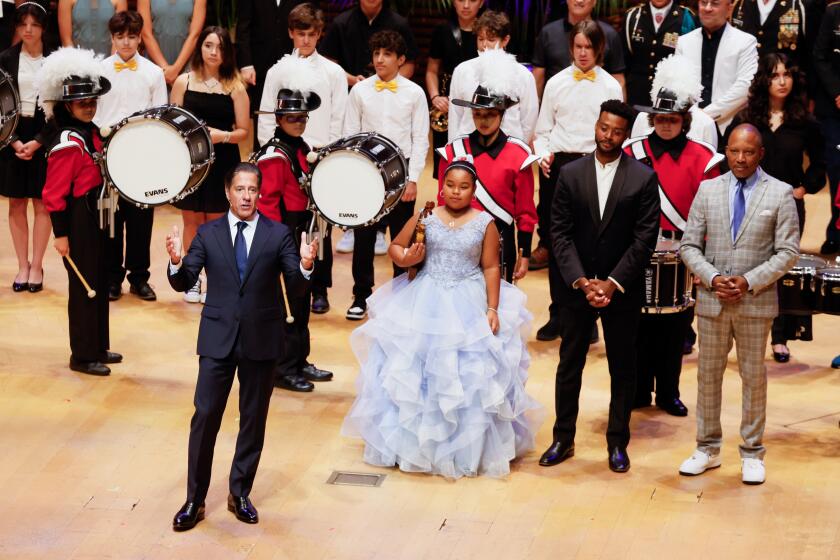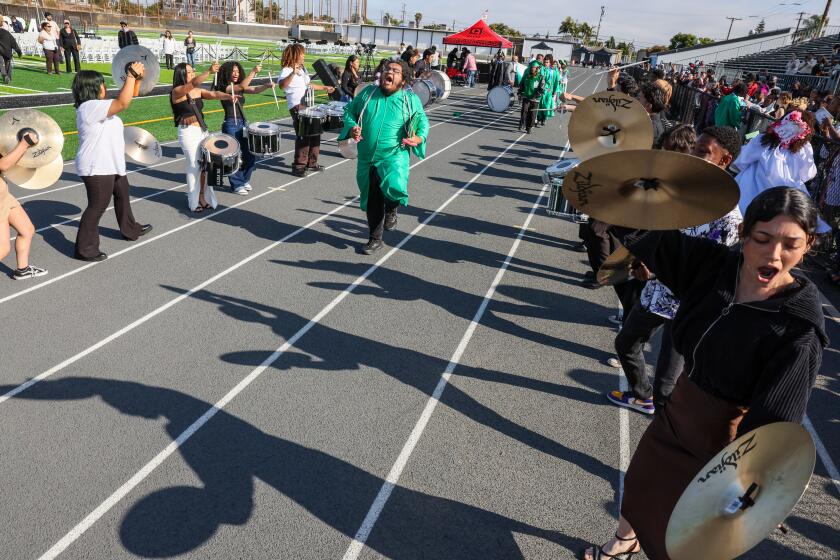Campus Correspondence : Student Journalist Interviews Professor--and a Controversy Thickens
Monday, the Board of Trustees of the City University of New York (CUNY) voted to reappoint Leonard Jeffries Jr. as chair of the college’s African-American department for a limited one-year term.
Jeffries has called that decision--in effect, a probation, since it postpones Jeffries official three-year reappointment until June, and could derail it entirely--an example of “white supremacy.” He claims I am part of this plot.
Jeffries has been the center of controversy since a speech he delivered, on July 20, at a black arts festival in Albany, N.Y. His speech included anti-Semitic, racist and anti-homosexual remarks.
Recently, I went to New York to interview Jeffries for my university’s daily student newspaper, the Harvard Crimson. As a result of this interview and of my interactions with him, Jeffries charges that I am part of “a media lynching” directed against him.
When I contacted Jeffries in early October, I explained that my beat involved interviewing controversial people, for example Meir Kahane, and I would like to speak with him. I assured him that he would be quoted at length and paraphrased as little as possible.
Jeffries agreed to my proposal. We set the interview for Oct. 17, in New York. The actual conversation was the next day.
“If all you’re going to do is come down here and label me an anti-Semite, don’t bother,” he told me before I left for New York. I assured him I would let him explain his theories.
When we arrived at the faculty dining hall at CUNY and took our seats, I told Jeffries that I would like to tape the interview. “That’s fine with me,” he answered.
I first asked him if he thought his comments would damage the black-Jewish coalition. “That’s a myth,” he said. “There never was a black-Jewish coalition. What we have, we’ve had to take.”
I then asked him what he thought about Henry Louis Gates, chair of Harvard’s African-American studies department. Jeffries’ remarks turned vicious.
“Who’s he?” Jeffries asked. Not realizing this was rhetorical, I began to answer. Then he interrupted: “Skip Gates. He’s a faggot. A faggot and a punk.” I looked at the tape recorder on the table. “Dr. Jeffries, I asked him again, what do you think of Prof. Henry Louis Gates?”
He leaned closer to the tape recorder. “I’ll say it again.” He did, adding, “How can (someone such as Gates) have the interest of African-Americans at heart when you sleep with white people?
“Skip as well as that fellow in California, Shelby Steele,” Jeffries said, referring to a professor of English at San Jose State University. “Steele’s mother is a white woman and he married a white woman. He has to talk about inclusion because he has got to go home and face his white wife and children.”
“If I see this again, I’ll kill you,” he warned me, referring to the statements he made. His face was a blank. As he continued to make inflammatory statements about people based on their race, religion and sexual activities, I realized I was meeting a very different Jeffries from the one he wanted in print.
“Do you realize that people fear you?” I asked. “They should,” he said.
Eventually, Jeffries wanted to know the racial makeup of the Crimson. Not wanting to misrepresent my paper, I told him there were few blacks on the paper.
He asked me for the names of the people who “run” the Crimson. I told him the name of the president, Rebecca Walkowitz, and of my editor, Steve Newman. After learning these names, Jeffries demanded the interview tapes.
“This interview is over,” Jeffries pronounced. “I’m gonna have to take this tape.” I tried to interrupt him when he started talking, but he ignored me.
The tape was still going and “Brother Larry,” one of Jeffries bodyguards, asked for it.
“The one in your pocket,” he added, referring to the extra tape I had on hand. I tried to talk to Jeffries, but Brother Larry came toward me. I handed him the tape but he said, “Put it in the tape recorder and play it.” Jeffries looked at him and Brother Larry said, “I just want to make sure that it’s the same tape.”
Jeffries nodded and said to me, “You don’t understand the powers you are dealing with.”
Now, Jeffries claims that there was no interview, and that I even embraced him when what he has now labels a “conversation” was over. This is false.
These, in summary, are the facts of my interview with Jeffries.
His claims that I am part of a media conspiracy are completely fallacious. My intentions were to report what he said that day, no more. I have.
More to Read
Sign up for Essential California
The most important California stories and recommendations in your inbox every morning.
You may occasionally receive promotional content from the Los Angeles Times.






